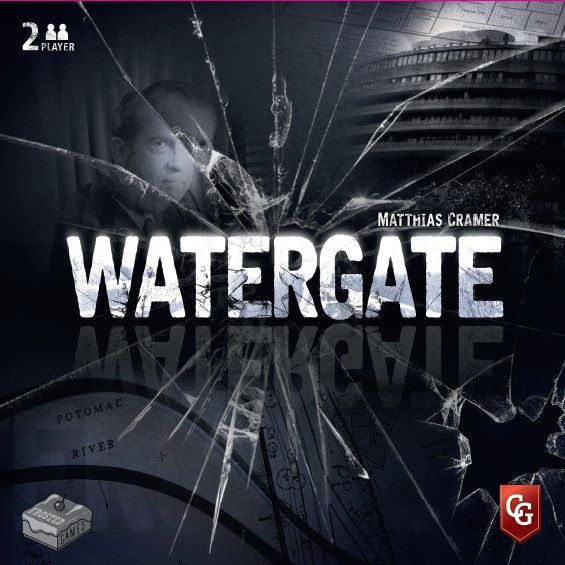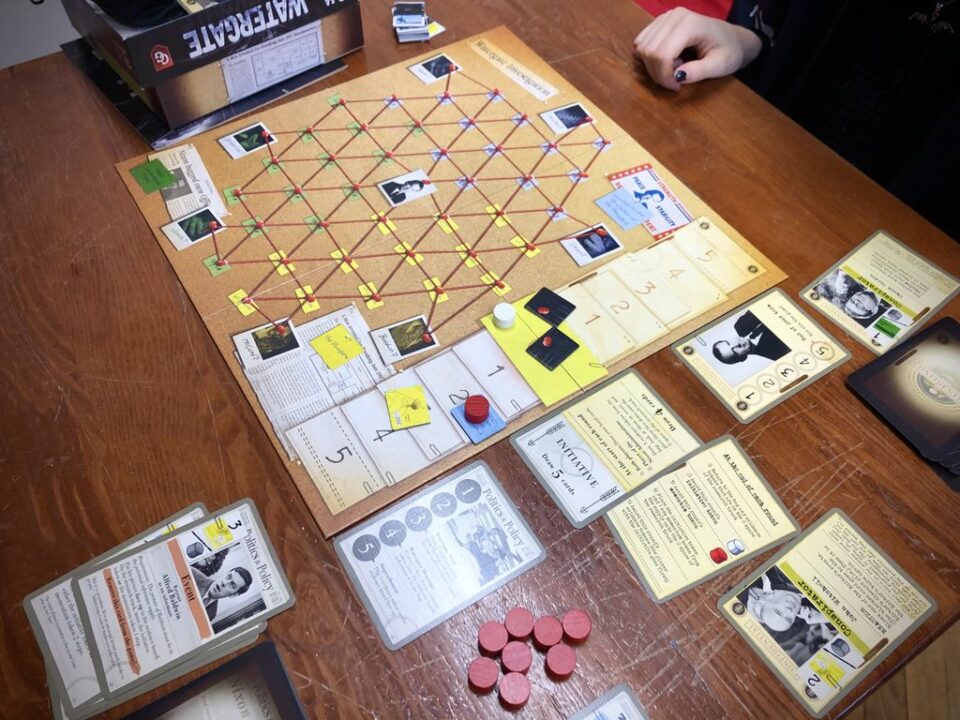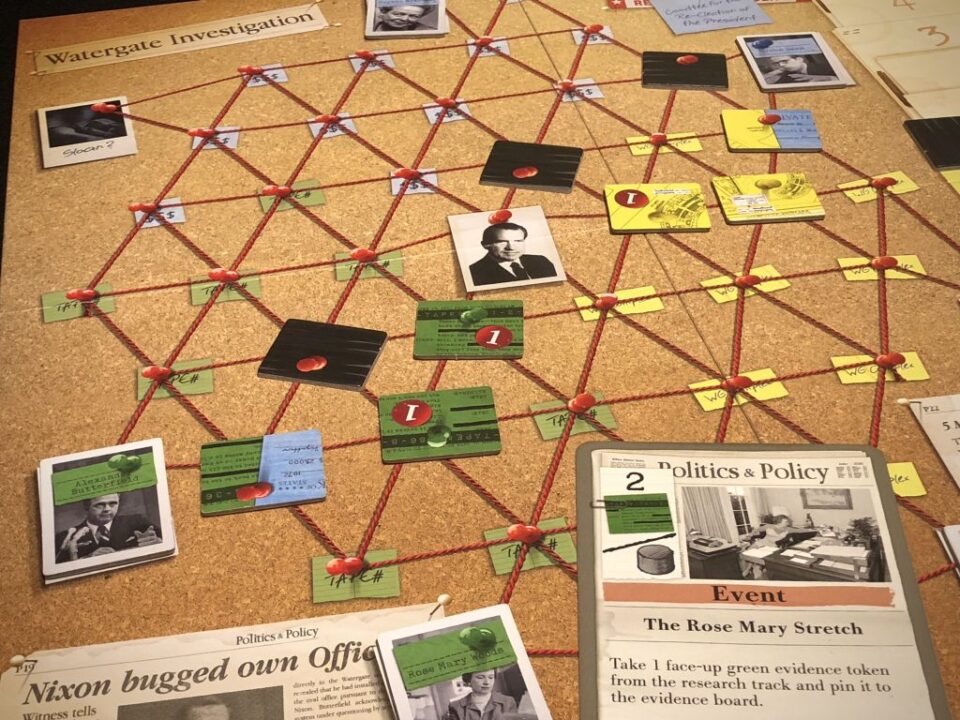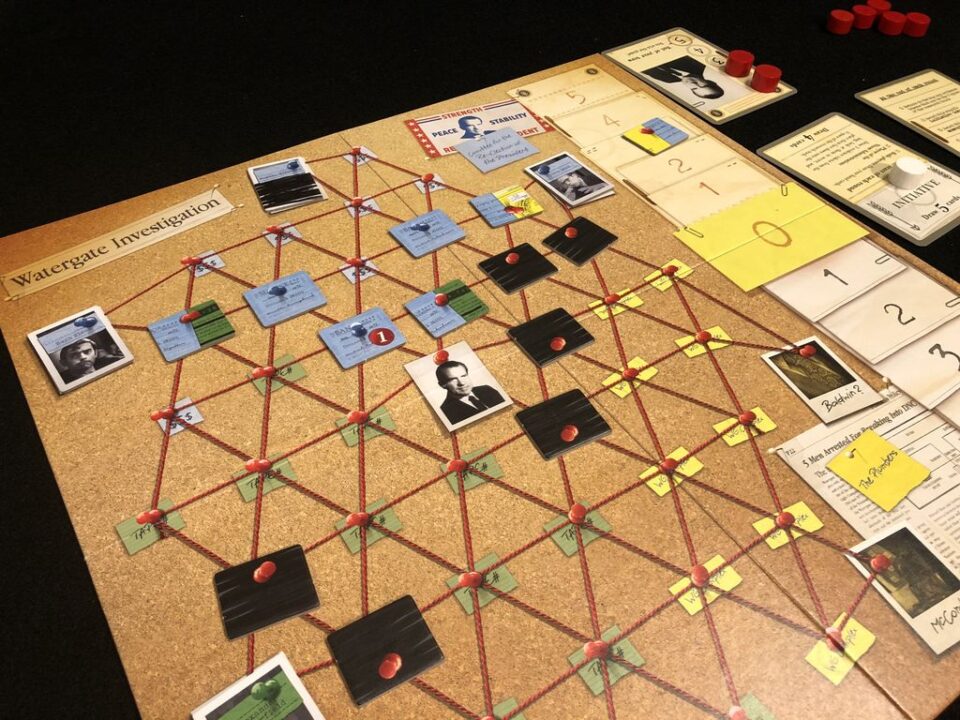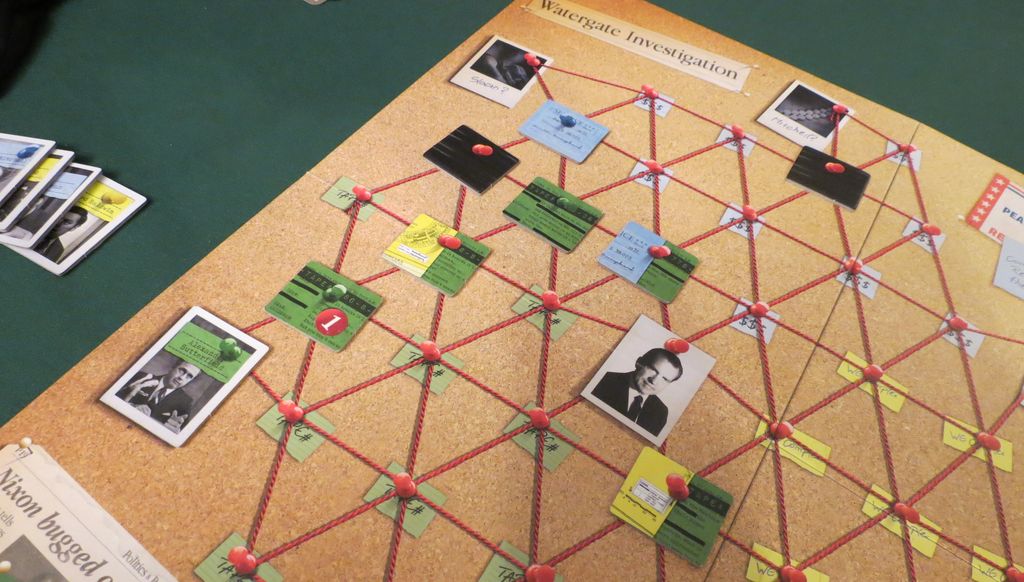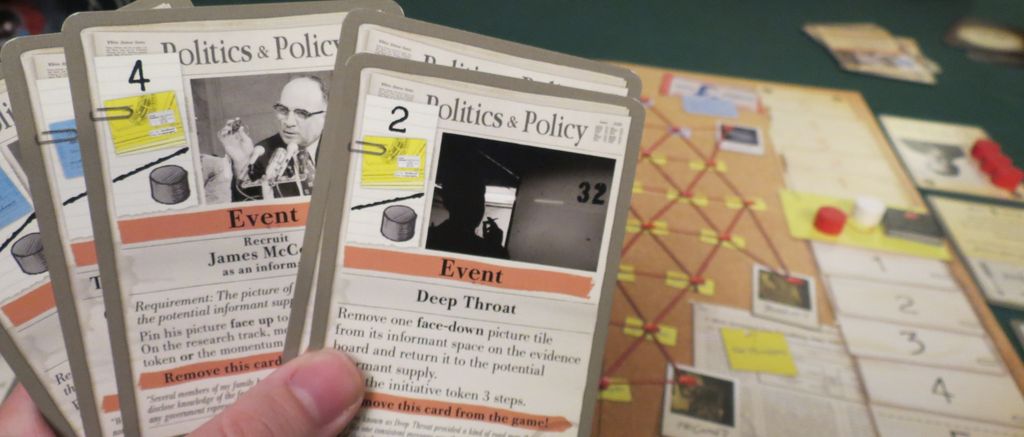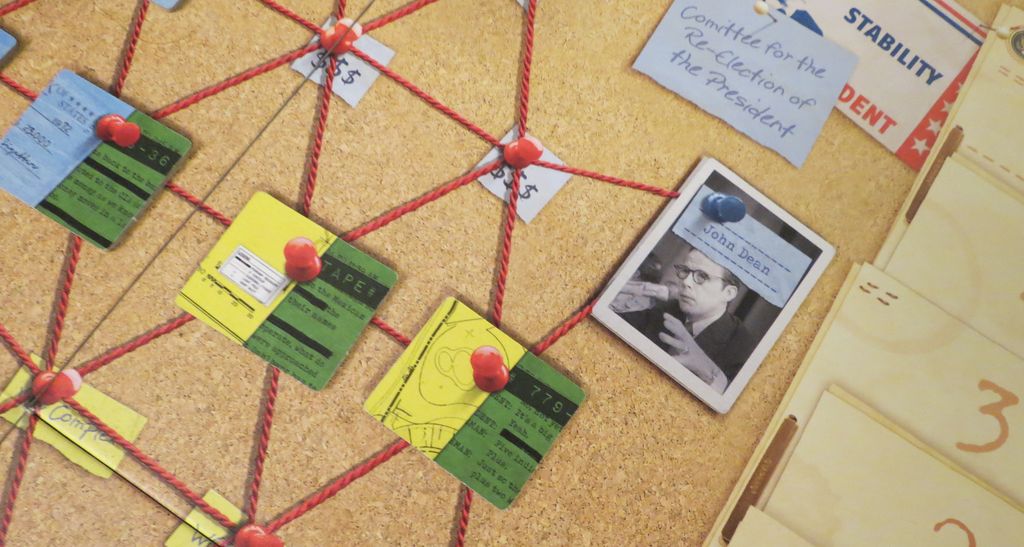Overview
Hey there, fellow board game enthusiasts! It’s Jamie here, diving into a fresh review. This time, we’re taking a close look at ‘Watergate‘. A game that wraps you up in a cloak-and-dagger dance of history, strategy, and intrigue. Let’s see if this game can keep us at the edge of our seats while schooling us on one of the juiciest political scandals of the 20th century!
How It Plays
Ever wonder what it’s like to be deep in the midst of a political scandal? ‘Watergate’ might just be the game for you. Whether you’re trying to uncover the truth or cover your tracks, this game packs a punch of strategy and suspense. So, let’s break down how to get into the action.
Setting Up
Setting up ‘Watergate’ is quicker than a press conference turnaround. Split into two roles: one of you will play the Nixon administration trying to keep the scandal under wraps, while the other takes on the role of a determined journalist trying to blow the whole thing wide open. Place the game board between you, shuffle the evidence cards, and get ready for some historical hijinks.
Gameplay
Gameplay in ‘Watergate’ is like a tug-of-war of wits and strategy. Players take turns drawing and playing cards, aiming to either gather evidence or block its discovery. The journalist works to connect two ends of the board with evidence, while Nixon’s team tries to block these paths and stabilize their administration. It’s a dance of action and reaction, where each move could tip the scales.
Winning the Game
Winning ‘Watergate’ doesn’t require a political science degree, just some sharp strategy. If you’re playing as the journalist, your goal is to link evidence to Nixon before time runs out. As the Nixon administrator, you win by accumulating enough momentum to make it to the end of your term unscathed. It’s a race against history, and only one side can claim victory.
Want to know more? Read our extensive strategy guide for Watergate.
Delving Into Watergate’s Historical Roots and Its Educational Impact
When you crack open Watergate, you’re not just getting a board game; you’re stepping into a riveting slice of political history. The creators did their homework, ensuring that every card and mechanic subtly teaches you about the infamous scandal that rocked the Nixon presidency. It’s a clever way to make history accessible and engaging, turning a complex political saga into a gripping tug-of-war between two players. As you maneuver through the game’s twists and turns, you’re not just strategizing for victory but also getting a lesson in political intrigue and media influence in governance.
But it’s not just about the past; the game raises questions about power, ethics, and accountability that are as relevant today as they were in the 70s. Every session ends with players a bit more informed about this pivotal moment in American history.
Now, let’s shift gears and strategize on how gameplay mechanics and strategy balance play out in Watergate.
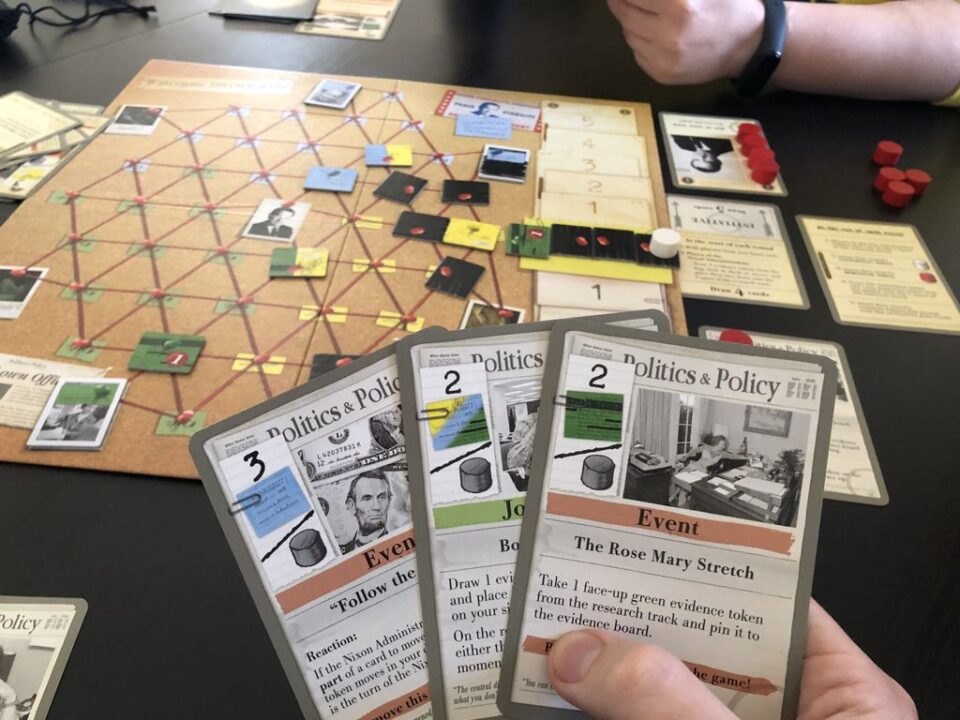
Mastering the Tug-of-War: Gameplay Mechanics in Watergate
In Watergate, the gameplay mechanics shine as a beacon of balance and strategic depth. One player embodies the Nixon administration, while the other takes on the role of a determined journalist. This setup creates a dynamic tug-of-war. Players must think several steps ahead, balancing short-term gains against long-term strategy. The beauty of Watergate‘s mechanics lies in its ability to be both accessible to newcomers and deeply rewarding for the seasoned strategist. Each move feels impactful, creating an intense atmosphere where every decision counts.
With a carefully curated mix of card-driven gameplay and strategic resource management, players find themselves deep in a cat-and-mouse chase that mirrors the historical tension of the era. It’s this balance that makes Watergate a standout. Now, let’s shift our focus and delve into the realm of component quality and aesthetics.
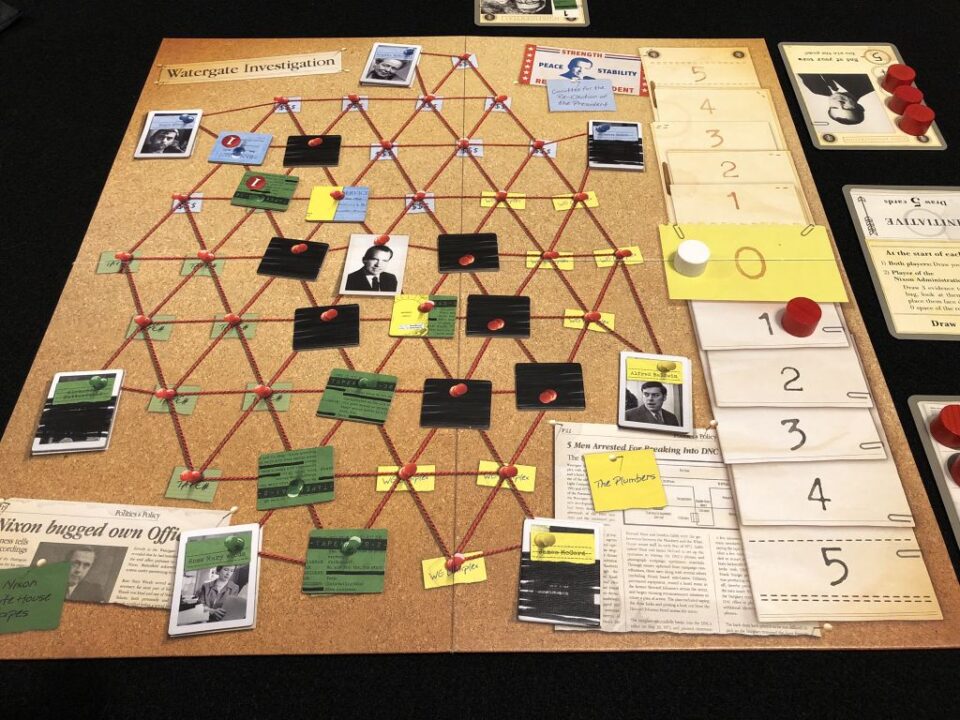
Unpacking the Component Quality of Watergate
When you first open Watergate, the feeling is like stepping back into a pivotal moment in history, but with the style and flair only a board game can offer. The components are top-notch; we’re talking cards that feel good to shuffle and tokens that have the kind of heft that makes moving them around the board feel important. The artwork deserves a shout-out too. It’s not just pretty; it captures the era’s tension and drama, making every playthrough not just a game, but a dive into the past. Plus, the board itself is a masterpiece of design, both functional and visually striking, guiding players through the complexities of the scandal with ease.
But great components mean nothing if the game overstays its welcome, right? Luckily, that brings us to the next juicy topic: Replayability and game length.
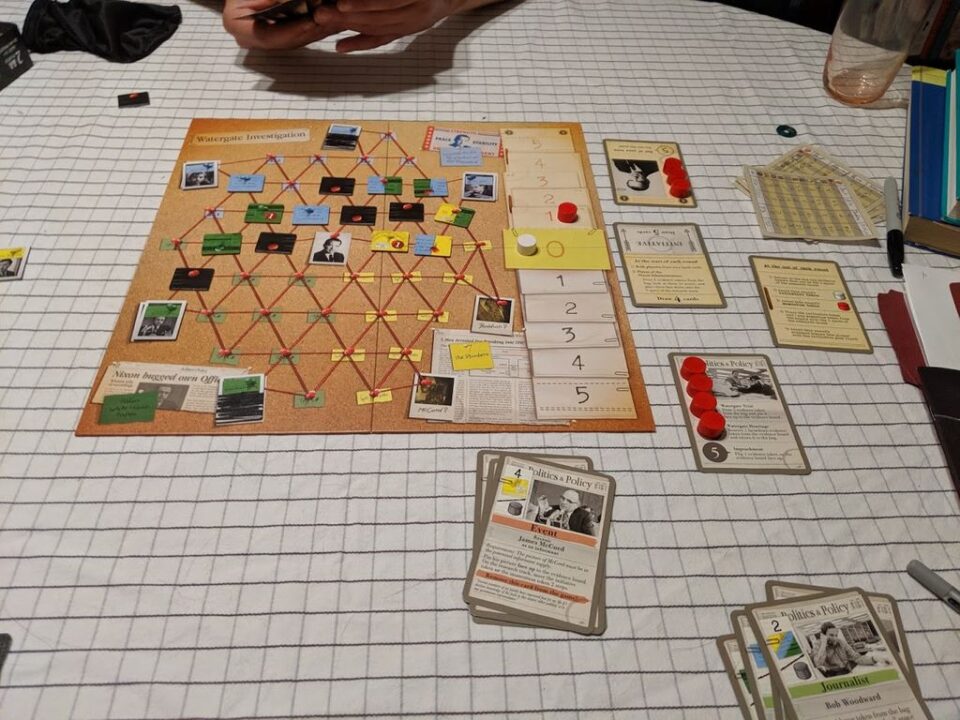
Keeping the Intrigue Alive: Replayability and Game Length in Watergate
Now, let’s chat about Watergate in terms of how often you’ll want to bring it to the table and how long a game usually lasts. One of the game’s charms is its relatively quick playtime, clocking in at about 30-60 minutes. This makes Watergate ideal for game nights where you’re looking to fit in multiple rounds or even multiple games. But don’t think its brevity means a lack of depth. Each game unfolds differently, thanks to a mix of strategic choices and the dynamic between the journalist and Nixon’s administration. This variability is a big win for replayability. You won’t feel like you’re playing the same game over and over. It’s compact, captivating, and keeps you coming back for more.
So, do I recommend Watergate? Absolutely. Whether you’re a history buff or just someone who loves a tight, competitive board game, Watergate delivers.
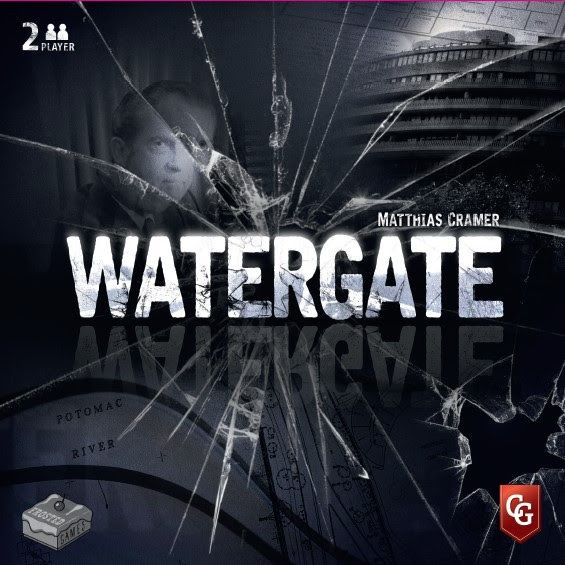
Conclusion
Wrapping up this review, ‘Watergate’ has proven itself to be a shining gem in the world of board games. Its blend of historical intrigue and strategic gameplay offers something truly unique. The balance between complexity and accessibility means it’s a hit at game nights, regardless of the players’ experience levels. With high-quality components that bring the scandal to life and enough depth to keep you coming back for more, it’s easy to overlook the minor hiccups in balance that might favor one side slightly over the other. In the end, whether you’re a history buff or just looking for a thrilling game of cat and mouse, ‘Watergate’ delivers an experience that’s both educational and downright fun. This concludes our deep dive into the world of ‘Watergate’. It’s not just a game; it’s a journey back in time, where every decision you make could change the course of history.

